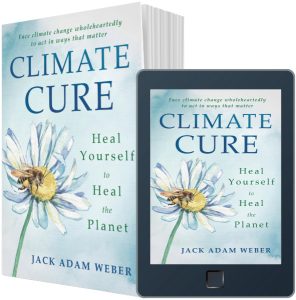We process emotional pain along the same neuro-circuitry we do physical pain.
Why is this so mind-blowingly significant?
Because to alleviate physical pain and injury our instinct is to resist and move away from the source of the injury. If the hot stove or the sharp end of a pen is causing you pain, you move away from it or stop the pain-causing activity.
But to alleviate most emotional pain, we have to get closer to and embrace it.
So this creates quite the conundrum if we process emotional pain signals the same way we do physical pain, because our default initial reaction is to jump away from or to stuff our fear, sadness, anxiety, and anger.
Ironically, this only creates more pain and denial. And, what’s even less obvious is that we also miss out on the regenerative effects of embracing our pain: more love, compassion, empathy, and comfort in our own skin.
This is why so much emotional work is counter-intuitive, at least at first. For many, befriending heartache doesn’t come naturally, and for good reason! We are wired to believe our emotions will hurt us the way physical pain does.
Emotional work and growing its intelligence is a practice, a courageous one. And by the very nature of facing what causes us initial fear and pain, it is a practice in overcoming irrational fear—that great driver of needless violence—and therefore an act of great compassion.
So, cozy up to what hurts your heart. That decision could pivot your entire life, and the ramifications are life and planet-changing—from opening to life and the vastness of compassion versus closing down and increasingly projecting your pain onto others.
Once you can metabolize and not fear your own pain so much, you can pay attention to what’s going on in the world, which allows you to be of greater service to suffering.
We help others by:
a) acknowledging their plight
b) feeling their plight
c) acting on their behalf
A, B, and C are a synergistic triumvirate. All 3 together create a compassionate dynamo. Lose one and you lose a sail that could eventually sink the ship.
Don’t let ancient evolution compromise your greatness. Use the power of its newest addition—self-reflection—to grow and maximize your humanity.


